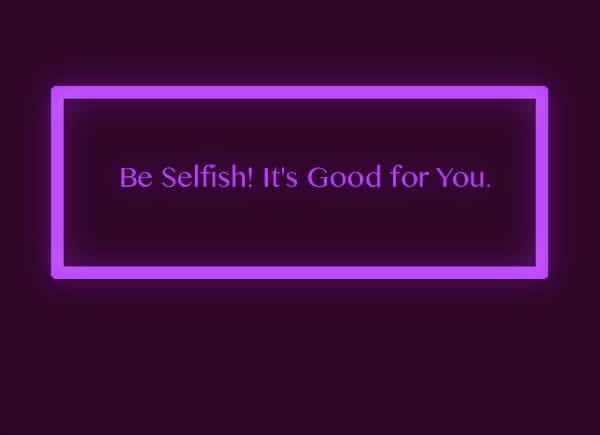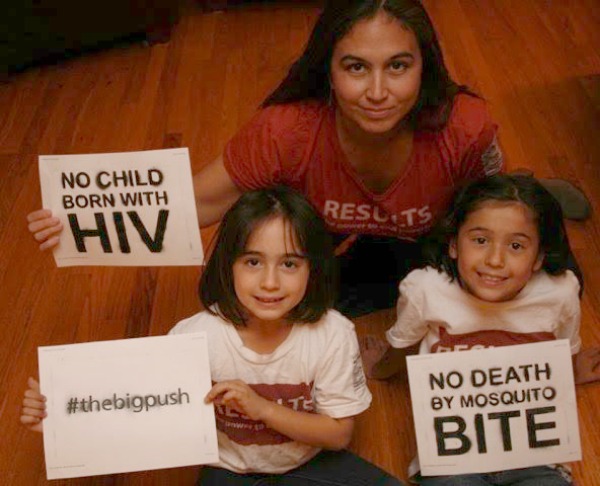
by Mannahattamamma (UAE) | Feb 8, 2016 | 2016, Adolescence, Boys, Family, Humor, Middle East, Older Children, Parenting, Teenagers, UAE, USA
 Frequently I am embarrassed by the fact that I only speak one language. Many of my friends in Abu Dhabi speak at least two, and most of my students speak three or even four. A few years ago I tried to learn Arabic and was stymied by a simple fact: my brain is old. It’s that whole “old dog new tricks” thing, which is to say, my brain wanted nothing to do with new lexical and grammatical systems.
Frequently I am embarrassed by the fact that I only speak one language. Many of my friends in Abu Dhabi speak at least two, and most of my students speak three or even four. A few years ago I tried to learn Arabic and was stymied by a simple fact: my brain is old. It’s that whole “old dog new tricks” thing, which is to say, my brain wanted nothing to do with new lexical and grammatical systems.
Lately, however, I’ve been confronted with another new language and it’s proving equally difficult to master. In fact, maybe I will never master it.
It’s the language spoken by fifteen-year old boys in the twenty-first century in a first-world city. It’s both a spoken and a written language, comprised of monosyllables, grunts, emojis, and weird snapchat abbreviations. It’s a language that his friends speak fluently and one that he never deigns to translate to us, his parents.
Let me be clear: my son is the proverbial “good kid,” who still (occasionally) sits on my lap (usually when he wants a favor), does his homework without being asked, and is (sometimes) nice to his younger brother. But beyond that?
We get commentary about his basic human needs—food, sleep, wi-fi—and then he retreats into his digitally created iCocoon.
When I look at my son these days, the air seems full of ghosts; it’s like I’m seeing time, compressed and wispy, floating between the two of us. I see his baby self, staggering around the house with mushy graham crackers clenched in each fist, and I see other snippets of his childhood, too, hovering just beyond his (increasingly broad) shoulders. And at the same time, there’s the ghost of my own teenage self, snarling at my mother (sorry mom!) as I stand by the phone, willing The Cute Boy to call me.
The phone is a key difference in this linguistic and generational incomprehension. Those of you of a certain age will remember the days when houses had those things we now call “land lines,” which were anchored in a specific place and were frequently shared by the entire household. That meant that your TOTALLY ANNOYING younger siblings could pick up another extension and a) eavesdrop on your conversation; b) tell your mom what you were talking about; c) tease you mercilessly while you tried to be cool with The Cute Boy on the other end of the line.
Now, however, my son and his teenage friends carry a scrim of adolescence with them at all times, an endless stream of chitterchatter, gossip, sports scores, vaguely obscene quizzes, and god knows what else. Did you know it’s possible to have a scintillating conversation conducted entirely in poop and unicorn emojis, with the occasional emoti-face thrown in for good measure? It’s as if teenagers have all been transported into an ancient Egyptian civilzation and are fluent in hieroglyphs—yet another language I do not speak.
As I think about it, I am not sure, really, whether it’s that my son and I are speaking different languages or that his other language is omnipresent in a way that my teenspeak was not, because technology didn’t let it happen.
At some point I had to hang up the phone and turn off the TV, and engage with my family. Mind you, I wasn’t necessarily pleased about those engagements, but the world of “non-family” was regularly shut off.
Now, with smart phones, the external world is always ready to hand; there is always a way to tune out the family world.
I can hear you all, shaking your heads and muttering that we should set some boundaries and be firm about your expectations and teach your kid some manners and I bet that some of you, with small children, are thinking “my children won’t ever…”
Here’s the thing: I’ve thought all those things too. But then one night my son became fifteen and the battle lines got redrawn. How many times can we argue about how much phone use is too much; how many times can we discuss “reasonable use?” My son insists that I am the only parent who nags about such things, but my totally unscientific research suggests otherwise. I’ve talked with friends from Europe, Africa, the States, and elsewhere in the Middle East, and the screen-time battle seems to be an almost universal parenting problem.
If I think about it, the translation problems run in two directions. If my son could speak “parent,” then he would understand that in my repeated (and to him unreasonable) requests that he turn off his phone and talk to me, I am really saying “don’t grow up so fast, please don’t be in such a hurry to leave us behind.” He would understand that watching him grow up is lovely — and ineffably sad.
Maybe he’d understand if I put it in snapchat-ese for him. Can anyone translate into emoji for me?
How are things different now from when you were a teen? Do you find that the teens of today speak a different language?
This is an original post to World Moms Blog by Deborah Quinn, Mannahattamamma of the UAE. Photo credit to the author.
After twenty-plus years in Manhattan, Deborah Quinn and her family moved to Abu Dhabi (in the United Arab Emirates), where she spends a great deal of time driving her sons back and forth to soccer practice. She writes about travel, politics, feminism, education, and the absurdities of living in a place where temperatures regularly go above 110F.
Deborah can also be found on her blog, Mannahattamamma.
More Posts
Follow Me:


by Tara Bergman (USA) | Feb 5, 2016 | 2016, Mental Health, Nature, North America, Tara B., USA, Womanhood, World Moms Blog, World Motherhood

It’s been the kind of month in which the worn down clasp on my emotional baggage has popped open, spilling years of contents everywhere in disarray. I have been methodically working through the cleanup, but today, I felt the need to wander in nature for a mental health break.
I walked out the door with my furry companion, an amazing golden retriever who is the best dang dog who ever lived. Seriously, she’s awesome. I usually like to map out our adventures a bit more, but I didn’t have the reserves to make up my mind on where to go, so I decided to just leave the house and see where we would end up. (more…)
Tara is a native Pennsylvanian who moved to the Seattle area in 1998 (sight unseen) with her husband to start their grand life adventure together. Despite the difficult fact that their family is a plane ride away, the couple fell in love with the Pacific Northwest and have put down roots. They have 2 super charged little boys and recently moved out of the Seattle suburbs further east into the country, trading in a Starbucks on every corner for coyotes in the backyard. Tara loves the outdoors (hiking, biking, camping). And, when her family isn't out in nature, they are hunkered down at home with friends, sharing a meal, playing games, and generally having fun. She loves being a stay-at-home mom and sharing her experiences on World Moms Network!
More Posts

by Tes Silverman | Feb 2, 2016 | 2016, Asia, Journalism, North America, Philippines, World Voice
 Where in the world do you live? And, are you from there?
Where in the world do you live? And, are you from there?
My name is Tes Silverman and I live in Huntington, NY but I was born in Manila, Philippines.
What language(s) do you speak?
I speak English but I also speak some French and a little Tagalog, which is the Philippine national language.
When did you first become a mother (year/age)?
I became a Mom when I gave birth to my daughter, Shaina, in 1999.
Are you a stay-at-home mom or do you do other work in or outside the home?
I am stay-at-home Mom but I work as a free-lance journalist and food writer for a Long Island, NY newspaper.
Why do you blog/write?
I have been a blogger for my personal blog, The Pinay Perspective for six years. The initial reason for my blog was to reconnect with Filipinas outside of the United States, but as I started writing about motherhood, parenting and topics that related to women’s issues, I started receiving feedback from women all around the world. I continue to blog & write because it gives me the opportunity to write about women and families, as well as gender and human rights – all issues I’m passionate about. My goal has always been to raise awareness regarding these topics.
What makes you unique as a mother?
I believe that I am different from other mothers because while I have always made sure to take care of my daughter’s needs first, I always make time to connect with other Moms I have befriended through Shaina. From those friendships, I started a Mom’s night out with my Mom friends sixteen years ago. It meant going out for dinner once a month so we could relax and talk about things that were important to us besides motherhood. Since then, some of my friends have moved away or just haven’t had the time to spare, but there are two Moms from the original Mothers group that still get together for dinner with me once in a while.

The author with her daughter
What do you view as the challenges of raising a child in today’s world?
As someone who has a teen daughter, I believe that raising a child today can be challenging due to constant exposure to social media. Social media has its place in today’s society, but it is should not replace the emotional connection between parents and children.
How did you find World Moms Blog?
I heard about World Moms Blog from attending the Mom+Social Good Summit and hearing one of the speakers talk about the work they do with Moms around the world.
This is an original post by World Moms Blog Contributor Tes Silverman of PinayPerspective.

Tes Silverman was born in Manila, Philippines and has been a New Yorker for over 30 years. Moving from the Philippines to New York opened the doors to the possibility of a life of writing and travel. Before starting a family, she traveled to Iceland, Portugal, Belgium, and France, all the while writing about the people she met through her adventures. After starting a family, she became a freelance writer for publications such as Newsday’s Parents & Children and various local newspapers. Fifteen years ago, she created her blog, The Pinay Perspective. PinayPerspective.com is designed to provide women of all ages and nationalities the space to discuss the similarities and differences on how we view life and the world around us. As a result of her blog, she has written for BlogHer.com and has been invited to attend and blog about the Social Good Summit and Mom+Social Good. In addition, she is a World Voice Editor for World Moms Network and was Managing Editor for a local grass roots activism group, ATLI(Action Together Long Island). Currently residing in Virginia Beach, VA with her husband, fourteen year-old Morkie and a three year old Lab Mix, she continues to write stories of women and children who make an impact in their communities and provide them a place to vocalize their passions.
More Posts - Website
Follow Me:





by ThinkSayBe | Jan 29, 2016 | 2016, Advice, Awareness, Being Considerate, Being Thankful, Caring, Celebrations, Child Care, Communication, Cultural Differences, Discipline, Equality, Family, Gratefulness, Happiness, Health, Helping, Husband, Identity, Independence, Kids, Life, Life Balance, Life Lesson, Maternal Health, Me-Time, Mental Health, Motherhood, North America, Parent Care, Parenting, Priorities, Relationships, Respect, Responsibility, Responsibility, Stress, ThinkSayBe, Time, Uncategorized, USA, Womanhood, World Motherhood

A life coach (LC) once told me it is important to be selfish sometimes. She had to explain what she meant because for as long as I could remember, the word ‘selfish’ was synonymous with not caring about anyone other than yourself. Well, LC was one of the sweetest people I have met, yet she did not strike me as one who would accept being pushed around, or would accept becoming a doormat. Usually, really sweet people are considered people on whom you can ‘get over’, right?
When I had this conversation with her I was already mother to by firstborn. However, I did not come to really contemplate the meaning of being selfish while being a mother, until after having my second child.
What LC was conveying to me is that although I am a mother, I am a person. Separate from all the titles I gather in life I have myself and I have to take care of self. You’ve probably heard it or read it somewhere…’If you don’t take care of yourself, you can’t take care of anyone else’. I have heard people reference it to when an aircraft loses oxygen and you are to put an oxygen mask on yourself before helping someone else, even your own child, put on her mask. Still, the word ‘selfish’ isn’t used here, even though it may be more concise and cost less to print. I do understand why: it just doesn’t sound good.
Nonetheless, being selfish (to an extent) is necessary for sanity, self-esteem, creativity, and a dynamic life.
I don’t know about other mothers, but I tend to analyze a lot. It used to be that before I left the house (children and husband in it), I would think of all I could do to make sure everything for the kids was where it was supposed to be so my husband could easily find it. It was as if the time I was going to be away had to be excused in my own mind, and that I was negatively selfish for not being there to care for them myself. I know this is absurd because we are both their parents and my husband hasn’t indicated, in any way, that he thinks or feels any of the things I am explaining here.
I realized I was hindering my own self from taking a break. From clocking out from my Stay At Home career. From taking care of me. From figuring out how to take care of me beyond taking a shower and maybe putting on some make up.
So about a month and a half ago my husband and I had a conversation. We acknowledged that we both feel the difference in our lives from how it was pre two small children and a teenager, to post two small children and a teenager. We agreed that we both need time to be ourselves individually and together. At the end of that conversation it was decided that I was going to begin taking scheduled ‘Me Time’.
The first time I had no clue what to do with myself. I was happy to leave the house and go do something. I didn’t want to waste my time. I didn’t want to do something as mundane as go window-shopping or take a nap in my car…like I have done a few times in the past. Then I realized I could do anything I wanted and I would be doing it by myself!
When I returned home I felt energized and didn’t feel like I needed to clock out again for a while. The second time I felt kind of guilty, leaving everyone again, so as it was already hard to schedule something with holiday travel, I just let that one go. Today was my third scheduled Me Time and I knew exactly what I was going to do. I was going to take my selfish self to the forest and hike! Yes, I was going to take a hike!

My hike was phenomenal. It was something I needed more than I thought. I wished for my husband and my children to be with me. I kept envisioning them there, but I knew I needed to be by myself. I needed to not worry about what they might need… if they are hungry, thirsty, or need a diaper change. Or if the 15-month old had eaten a crayon or is putting his finger in his mouth and maybe is now interested in sticking it in an electrical socket.
That’s the thing, you know? Being a Stay at Home Parent means that as long as your children are awake, you have to be aware while you’re cooking or cleaning, or doing whatever else you may need to do, Additionally, you have to be present for the myriad learning moments young humans have. I personally think that is tiring. I feel like I am wrong for feeling this way. That, as a parent, but more so as a mother, I should want to be with my children all the time and I should only get a tiny bit tired just as any human would from being awake and doing regular things.
To continue, my hike was what I needed. I focused on thinking of nothing. I took deep breaths as I walked briskly onward in the chilly air. Every time I thought to meditate I would first repeat a prayer I know, and then somehow ended up seeing Purnima Ramakrishnan’s face as if she was leading a meditation session. It was so strange and SO funny! Then I kept thinking about how I should have asked if there are wild animals to be concerned about on the trails. Black bears and cougars would have to just let me have my Me Time, you know?
After the hike I watched a R-rated movie (The Big Short) and ate a cookie.
I got home to two little babes wanting to be tickled and wanting to use me as an obstacle they had to demolish. It was a lot of fun and I knew I was better for them since I went and had some time with my own self.
Do you take time to do things on your own? Do you ever feel like you could be better for your children? When you do take time away, are there specific things you do that bring you back to center? What do you think about the word ‘selfish’?
This is an original post to World Moms Blog by Sophia. You can find her blogging at Think Say Be and on twitter @ThinkSayBeSNJ.

Photo credits to the author.
I am a mom amongst some other titles life has fortunately given me. I love photography & the reward of someone being really happy about a photo I took of her/him. I work, I study, I try to pay attention to life. I like writing. I don't understand many things...especially why humans treat each other & other living & inanimate things so vilely sometimes. I like to be an idealist, but when most fails, I do my best to not be a pessimist: Life itself is entirely too beautiful, amazing & inspiring to forget that it is!
More Posts
Follow Me:


by Jennifer Burden | Jan 28, 2016 | 2016, Maternal Health, Mission Motherhood, North America

As part of World Moms Blog’s collaboration with BabyCenter’s Mission Motherhood™, our World Moms are writing posts on maternal health around the world. In today’s post, Cindy Levin in the USA writes…
“Twelve years ago, as I rocked my baby through dark Chicago winter nights, I was beset with “new mom” anxieties about whether I could properly care for her. Post-partum chemistry and sleep deprivation fueled irrational worries about her health. With a new sense of motherhood comradery, I listened to a radio story about a 21-year-old widow in Kenya responsible for 13 children from her extended family. All of their parents had died of malaria or other diseases. I began to contemplate how horrible it is that mothers in extreme poverty often don’t survive, much less meet the needs of their children. How could I dwell on imaginary fears when others faced real dangers? And how could I possibly help?”
Read the full post over at BabyCenter’s Mission Motherhood™!

Jennifer Burden is the Founder and CEO of World Moms Network, an award winning website on global motherhood, culture, human rights and social good. World Moms Network writes from over 30 countries, has over 70 contributors and was listed by Forbes as one of the “Best 100 Websites for Women”, named a “must read” by The New York Times, and was recommended by The Times of India.
She was also invited to Uganda to view UNICEF’s family health programs with Shot@Life and was previously named a “Global Influencer Fellow” and “Social Media Fellow” by the UN Foundation. Jennifer was invited to the White House twice, including as a nominated "Changemaker" for the State of the World Women Summit. She also participated in the One Campaign’s first AYA Summit on the topic of women and girl empowerment and organized and spoke on an international panel at the World Bank in Washington, DC on the importance of a universal education for all girls. Her writing has been featured by Baby Center, Huffington Post, ONE.org, the UN Foundation’s Shot@Life, and The Gates Foundation’s “Impatient Optimists.” She is currently a candidate in Columbia University's School of International and Public Affairs in the Executive Masters of Public Affairs program, where she hopes to further her study of global policies affecting women and girls.
Jennifer can be found on Twitter @JenniferBurden.
More Posts - Website
Follow Me:


by Kirsten Doyle (Canada) | Jan 27, 2016 | 2016, Mental Health, Mental Illness, North America, Teenagers
 About a week before Halloween last year, a teenage boy named Joshua committed suicide. He had graduated Grade 8 at my son’s school just four months previously, and in September he had started attending the local high school across the road. Everything was going well. He was adjusting to high school and making new friends, and he was happy.
About a week before Halloween last year, a teenage boy named Joshua committed suicide. He had graduated Grade 8 at my son’s school just four months previously, and in September he had started attending the local high school across the road. Everything was going well. He was adjusting to high school and making new friends, and he was happy.
Except he wasn’t.
About six weeks after the start of the new school year, Joshua’s younger brother Tommy needed help with his homework. He knocked on Joshua’s bedroom door and went in, expecting to see Joshua hard at work on his own homework. Instead, Tommy saw the body of his brother hanging from the curtain rail by a belt.
Nobody knows what drove Joshua to such a tragic extreme. He never spoke of any crises, there was no bullying that anyone was aware of, and he seemed to be fitting in well at his new school. In the absence of any other answers, Joshua’s family are slowly arriving at the conclusion that this was a case of teen depression that was never detected.
What makes teen depression so hard to identify is that so many of the symptoms and warning signs are seen as just a part of being an adolescent. As young people experience the firestorm of pubescent hormones, they start to speak and act differently. They become self-conscious about their bodies, they display the infamous “teenage attitude”, they fight all kinds of internal battles as they try to figure out who they are. Self-esteem takes a knock, they may become withdrawn, aggressive or both, and they start to guard their privacy more closely than before.
Yes, all of these things are typical teenage behaviours. But they are also typical behaviours of people experiencing depression.
It creates a minefield for parents, who have to balance respect for their child’s growing need for privacy with enough vigilance to know when something is wrong.
The Canadian statistics surrounding youth and mental illness are deeply troubling:
- Up to 20% of Canadian youth are affected by a mental illness
- Canada’s youth suicide rate is the third highest in the industrialized world
- Suicide accounts for 24% of teen deaths in Canada – the second leading cause of death in this age group
(Source: Centre for Addiction & Mental Health)
So what can we as parents do to keep our children safe from the ravages of mental illness? How do we tell if a teen is just being a teen or if there is something else going on? I did an informal survey of parents, teachers and mental health practitioners, and this is the advice they had to offer:
- Create open lines of communication with your children from as early an age as possible. If they grow up knowing they can talk to you about anything, they will be more likely to approach you if something is wrong.
- Make mental health a topic of conversation in your household, just as you talk about physical health. You encourage your kids to tell you if they are not feeling physically well – the same should happen if they are not feeling mentally well.
- Allow your teen to have privacy, but establish an understanding that his or her privacy only goes so far. Social media accounts should be set up under your supervision, and you should know the passwords.
- Ensure that your teen has access to a trusted adult apart from you. Every adolescent has things that they are not comfortable talking to their own parents about, but they still need guidance on those things. It could be an aunt or uncle, a teacher, or a family friend.
- Watch out for changes in behaviour patterns. It is normal for teens to go through periods of being irritable or emotional. If it lasts for a longer time than usual, or if it is accompanied by changes to eating or sleeping patterns, there might be something going on.
- If your teen starts to wear clothing that doesn’t make sense – such as long sleeves in summer – they may be hiding the marks of self-injury.
- When in doubt, simply ask. Many teens struggle alone with depression or anxiety because they simply don’t know how to talk about it. All they need is for the conversation to be opened.
Teen depression – or any mental illness – is very frightening for the teenager, and for the loved ones. The bad news is that right now, mental health services are only being provided to one in five Canadian kids who need them – mostly because the need is not being identified. The good news is that in the vast majority of cases, getting help can make a huge positive difference in the lives of these kids.
How do you approach discussions of mental illness in your family? Have you ever had to seek treatment for a child or a teenager suffering from a mental illness?
Today, January 27th, is Bell Let’s Talk day in Canada. For every tweet using the #BellLetsTalk hashtag, and for every Facebook share of the image in this post, Bell Canada will donate five cents to mental health initiatives.
This is an original post to World Moms Blog by Kirsten Doyle. Image courtesy of the Bell Let’s Talk campaign for mental health awareness.

Kirsten Doyle was born in South Africa. After completing university, she drifted for a while and finally washed up in Canada in 2000. She is Mom to two boys who have reached the stage of eating everything in sight (but still remaining skinny).
Kirsten was a computer programmer for a while before migrating into I.T. project management. Eventually she tossed in the corporate life entirely in order to be a self-employed writer and editor. She is now living her best life writing about mental health and addictions, and posting videos to two YouTube channels.
When Kirsten is not wrestling with her kids or writing up a storm, she can be seen on Toronto's streets putting many miles onto her running shoes. Every year, she runs a half-marathon to benefit children with autism, inspired by her older son who lives life on the autism spectrum.
Final piece of information: Kirsten is lucky enough to be married to the funniest guy in the world.
Connect with her on Facebook, Twitter and Instagram.
Be sure to check out her YouTube channels at My Gen X Life and Word Salad With Coffee!
More Posts
Follow Me:




 Frequently I am embarrassed by the fact that I only speak one language. Many of my friends in Abu Dhabi speak at least two, and most of my students speak three or even four. A few years ago I tried to learn Arabic and was stymied by a simple fact: my brain is old. It’s that whole “old dog new tricks” thing, which is to say, my brain wanted nothing to do with new lexical and grammatical systems.
Frequently I am embarrassed by the fact that I only speak one language. Many of my friends in Abu Dhabi speak at least two, and most of my students speak three or even four. A few years ago I tried to learn Arabic and was stymied by a simple fact: my brain is old. It’s that whole “old dog new tricks” thing, which is to say, my brain wanted nothing to do with new lexical and grammatical systems.




 Where in the world do you live? And, are you from there?
Where in the world do you live? And, are you from there?










 About a week before Halloween last year, a teenage boy named Joshua committed suicide. He had graduated Grade 8 at my son’s school just four months previously, and in September he had started attending the local high school across the road. Everything was going well. He was adjusting to high school and making new friends, and he was happy.
About a week before Halloween last year, a teenage boy named Joshua committed suicide. He had graduated Grade 8 at my son’s school just four months previously, and in September he had started attending the local high school across the road. Everything was going well. He was adjusting to high school and making new friends, and he was happy.



